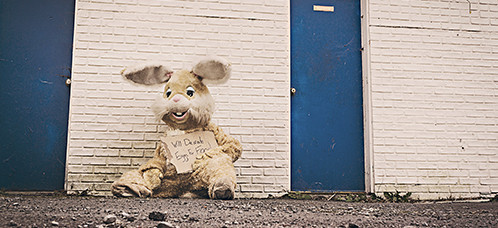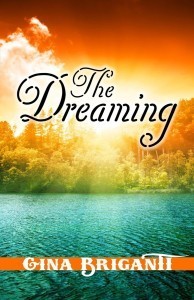C.V. Larkin's Blog
February 3, 2015
Editing, Minimalism, and Mindful Living
My family moved around a lot as I was growing up. I don’t mean we moved a couple of times, I mean we ghosted in and out of cities, states, and individual houses every two years, like clockwork. I was that kid, the one you didn’t know or only vaguely remember. At some point my family settled, but by then the wanderlust had set in and I just kept going. My lifestyle wasn’t permissive of owning or having a lot of stuff around, but I was much less discerning about what I spent my money and time on. Translation: I’d still amassed a bunch of crap, but I had less of it than I would have had otherwise.
Visual storytelling was my first love, it has always been intuitive, and I’ve been making things since I could remember. As an artist, I’ll admit to a natural propensity toward hoarding, which I have to be consistently mindful of. Anything that captures my imagination I want to be around. I want to live in it. I want to enhance it. Regardless of how many times I’ve moved, I’ve still cobbled together a spectacular collection of books which I take both pleasure in and am aware could get out of hand. The ability to create an entire world that was limitlessly vast and intricate, and carry it with me always, was why I started writing. The ability to edit the bisecting, shark chucking, ink spewing, word tornados in my skull down to a sequence of cogent images and living characters was why the excitement of a more minimalistic approach spread to the rest of my life. If I could edit in fantasy, why couldn’t I do the same to my reality?
Here’s what I’ve learned thus far. 1) Buy less and make more. That goes for gifts, household tasks, room renovations, organization, character tropes, canned interactions, fitness, and probably a whole slew of other things. It’s a very multi purpose solution. For me it’s been gratifying. By limiting the things that I consume down to a manageable list, I can make mindful choices about what I do, buy, and interact with. Those moments and purchases are more satiating. 2) Subtract what doesn’t serve. I’m pretty sure this is a Bruce Lee ideology, which goes to show, it works for more than just writing. If a word, or a phrase, or an environment doesn’t make me melt with joy, I subtract. I yank out artifice until I can expose all of the raw goodies underneath. When it feels real is when I feel the most connected. I need that feeling in my life or else I’ll just float around heartsick and untethered. 3) Love each thing for what it is. There often exists a dichotomy between what a person or an object is, and what we want them to be. For me, this is the most prevalent when I don’t know my own needs. When I’m not aware of what I’m missing, it becomes almost guaranteed that I’ll fill up with things and interactions that make me feel more alienated instead of less. It can be easy to lose perspective in that place. When I’m not careful, I write that way. When I’m less careful I’ve lived that way. It’s unfair to everyone involved. When I’m aware of my own needs, or the needs in my writing, it becomes infinitely easier to love a thing for what it is.
If we meet at some point and you ask me about this in person, you will inevitably get more information from me than you would get otherwise. Sorry in advance. It get’s worse when I’m excited about the subject matter. I have yet to learn to self edit, on the fly, as the words are coming out of my pie hole. What I have learned, is that being mindful of the plot of my life really does seem to enhance the way in which I live it. Mindful minimalism helps to negate the creeping feelings that I once smothered or pacified with some emotional-duct-tape-stop-gap-measure. I push against the impulse to add more because I’m much happier and more literate with less.
September 23, 2014
Why Character Tropes Aren’t Getting The Job Done

Image courtesy of Gratisography
If you’re having a problem with the characters in your writing, or in creating meaningful characters in the first place, it’s probably because you’re falling into the trap of ease and convenience that is the character trope. Fucking stop it. A trope isn’t going to get the job done. Alone, it’s just a bare bones framework. It’s an unfinished house for loitering garden gnomes. Authenticity is the only thing that is going to save those sons of bitches. In order for a character to live, we have to risk making them real. All of them, in ways that are occasionally unpopular. If not, you’ve just got one or two crazy pricks running around in predictable patterns railing at cardboard cutouts with no emotional payoff.
As a society we want to label or quantify everything and everyone. It’s safe, but it’s not reliable. It only works on a surface level. As a storytellers, we need to know our characters better than that. We need to know ourselves better than that. We have to ask and answer ugly questions in unflattering ways. It’s a terrifying proposition to balance sympathy and unabashed realism, but that’s what we signed up for- the exposure wrapped in an enigma of bullshit, sandwiched between a couple slices of vulnerability and charm. The written word is the most intimate of storytelling mediums. It delves, the most blatantly, below the skin of the world. In order to do that justice, we have to be prepared to follow it down and to be honest about what we find. Anything else smells like fraud.
To believe in the lie, it has to reflect the truth. We both want and need to believe in the lie. And the best lies don’t even ping on the radar. They stroll right past us swaddled in God’s-honest. You are now a time honored creator of this stuff. It is your job to get it right. It’s swell to know what your character’s favorite color is or what their preferred brand of cereal is, but knowing things about someone doesn’t constitute knowing them. We have the opportunity to ask our characters all of the questions we want to ask strangers, but don’t. Ask your characters the questions that you’re afraid to ask yourself. Look for what is not congruent. Look for the conflict between answers and actions. In the interest of full disclosure, here are ten of my favorites:
Describe the last time that you were happy.
What are you afraid of?
What is the last lie that you told? The last thing you covered up?
What do you think it says about you?
Do you like yourself?
What is the last action you took out of self preservation? Last selfless action?
What do you want out of your life?
What are you proud of?
Fill in the blanks. When you say ______, you really mean _______.
Why would you give me the answers to any of these questions? Be specific.
A story can be many things. Anything really, but a character CAN NOT be an inauthentic representation of his or her own nature without weakening the fundamental structure of what you’re trying to achieve. I don’t mean that every character has to be strong or that they all have to be strong in the same way. I mean that we have to do the work and make the difficult decisions that allow them to be more than place fillers or props. They have to reveal themselves. Take away the tropes or turn them on their heads. Our skills as writers hold true, when our characters are real enough, unexpected enough, to make us stop caring that it’s fiction.
The post Why Character Tropes Aren’t Getting The Job Done appeared first on .
September 3, 2014
Fear and the Fledgling Writer
Let me start out, by saying that I should be working on “Sliver and Dust.” I’ve been obsessing over it, loosing sleep, becoming a caffeine soaked cliche of myself, and it’s almost done. There are plenty of aspects to the book that make me nervous. I’m going to surface for air because the thought occurred to me to wonder if all writers feel that way. I wonder if discomfort is an indicator of an interesting project. I think to myself, that there is too much of me in this, and most of it is a lie. What does that say? Maybe that I’m a masochist, or that fear is inseparable from creation. But hey, who wouldn’t enjoy tossing prose ladened Molotov Cocktails at their personal boundaries and general discomfort with judgement? Amiright?
I want to throw this out into the Writer-sphere. I’ve mentioned on a few occasions that fledgeling writers get a lot of advice, today I’m also going to assert that we, much like the veterans, harbor an unnecessary amount of creative guilt and/or fear. We’re lucky, though, nobody knows we’re holding the talky stick yet. And that means we can say anything in the ever-loving creative fuck we want. Doesn’t that mean we’re pretty much obligated too?
Okay, okay. Just maybe I’m formulating theories at random, in an effort to cope with being relatively unknown. Shit happens. It doesn’t mean that there isn’t some small kernel of validity in my zygote ink jockey ranting.
There is an unrivaled level of freedom when it comes to shouting into the void. It’s why we spill our ugliest secrets to the bartender and not to our nearest and dearest. For an established writer there is an established level of censure. It’s a given. There are people besides readers to please. There is a brand to uphold. Certain compromises are expected, social standards have to be met, a voice has to be maintained, and deviation from the formula isn’t always welcomed with wide open arms and an atta boy/girl slap on the ass.
When you’re a relatively unknown writer, you dream things up, and you talk to yourself like a nut, and you hope like hell, that you can express yourself to your audience with enough resonance that you become a spectacular secret that also makes book sales. Books sales are important. There are too many choices in the world that aren’t really choices, too many carbon copies wrapped in different packaging. As a writer you can choose to be safe or not. You will be judged either way. Judgement is the barometer of any creative. Anonymity gives a dubious illusion of safety, perhaps, but it’s there.
We have the opportunity to build ourselves, cobbling the worlds in our head together out of insecurity, chaos, desire, and words. It could be bullshit, mostly lies, life is like that sometimes. It’s the glowing coals of truth that give it authenticity; the burning fleeting moments where we feel all of it too deeply to extract. How are we supposed to do that if what we’re working on isn’t terrifying, isn’t obsession level exciting? The truth is, I never was any good at coloring in the lines. I’d rather be an oddity than “borrow” someone else’s tried and true formula, but let’s face it formulas are tried and true because they work. If you’re going to be different, you have to be different exceptionally well. It’s enough to make anyone nervous.
That said, I’m taking my series and we’re going streaking.
What say you?
The post Fear and the Fledgling Writer appeared first on .
June 25, 2014
Sex, Blood, and Salvation

Jin N Tonic & Josh 02 By: Robert Bejil Photography
I’ve spent plenty of time lately thinking about why I write romance novels. Yes, yes, my stories are bloody, and dark, and urban fantasy focused. Sometimes they are cruel. But at the core… there is love. Why do I do that? Maybe it’s because I secretly (or not so secretly now) believe that love resides in the core of all creation, it builds and renews. Destruction is much more straight forward, much easier to find and define. Mortality comes with a built in affinity toward chaos, it feels inevitable, like gravity. Love takes work, conscious effort; the ability to embrace fear and connect. It is the great redeemer of all things.
Our society tends to gloss over violence, but condemn or generally write off physical expressions of love. Sex is bad or frivolous. Graphic sex is even more taboo, but hey, blood soaked play by play killing rampages, well, that’s just entertainment. I would like to be able to say that I remain unaffected by this overarching and ridiculous sentiment. It would be untrue. It’s still much easier for me to write violence than it is to write sex. I make a very specific point to write both, I like to think that I do it well. After the ink is spilled, there is a substantial amount of fear in how writing towards such things will be received.
I would be lying if I said both aspects, love and destruction weren’t creatively fulfilling or enjoyable. I find perfection perplexing. It doesn’t matter if said perfection is in character development, lack of conflict, visual art, or even product design. I don’t know how to relate. I can relate to love. It is hideous and beautiful and all things in between. It is never perfect. Nothing that evolves, nothing that takes such consistent work is perfect. The magic of it resides there.
The post Sex, Blood, and Salvation appeared first on .
May 29, 2014
Art is Storytelling, Storytelling is Art

Image courtesy www.gratisography.com
An Open Call For Featured Artist Submissions
The literary world doesn’t give visual artists enough credit. Yeah, you read that correctly and, yeah, it may kinda, sorta, no definitely, be an inflammatory statement. Here’s the thing though, I’ve heard murmurs in various pockets of the writing community that describe graphics as a necessity more than a brilliant aesthetic display of a story within a story. Art is about more than marketing, it needs to rank higher in the order of literary importance. The unfortunate misconception is that concept or cover art is on par with shaving the back fur off of an angry cheetah to garner attention. While it may get you noticed, especially if, say, your book is titled “The Fastest Ways To Lose A Digit To Exotic Wildlife”, unless you get maimed or eaten no one’s really supposed to give a shit.
The truth, however, is that we do. The more I get such advice, the more stubbornly I want to push against it. I find it irksome. Here’s the problem with the book art = cheetah theory, real art in any discipline isn’t meant just for marketing purposes, it’s meant to connect, to resurrect a few of those vital little pieces of ourselves we lose to life along the way. Real art, true storytelling, in any medium can do that. It has magic and guts.
For those pragmatists out there, our society is visual. Our first connection to anything new is usually visual and, let’s be honest, it’s a make or break moment. That means, if a story is phenomenal and it looks like junk most of us are going to skip over it in search of the total package, or something closer to it. On the flip-side words paint pictures graphic enough to warrant collaboration. And for some reason writers, in particular, seem to get a big ole societal head pat of creative and social clout. I think artists and writers are way past due to make something spectacular, immersive, and different together.
Here’s the concept: I want to world build across multiple disciplines by championing amazing artists. Ash to Embers is a multi-faceted story and the Courting Shadows world is a big one. There’s no reason that the inner worlds gnawing away at our synapses can’t be as real, as visual, and as diverse as the one we live in. Send me your Courting Shadows artwork and tell me a little bit about yourself. I’ll feature the best submissions monthly on my website for all of my readers with a big fat artist credit along with a link to your artist page and other work. Not only that, but for each featured character or concept image, I’ll write a new corresponding scene or piece of flash fiction to go along with your glimpse into the Courting Shadows Universe.
That said, I’m an art geek (I’ve got the tattoos and the degree to prove it) so everyone’s creations will have an artist credit and a special place in the gallery. Have another idea, you clever thing you? E-mail me. This is intended as a true collaboration, I’d love to hear your thoughts.
There is a gap between the various creative disciplines that doesn’t have to be there and I want to obliterate it. That’s it. By now with any luck, all you amazing artists out there will feel effectively wooed. This is my author site and I have no interest making about me. It’s a place for readers and creatives; a continuation of the Courting Shadows characters and concepts. Want to world build in across multiple disciplines? Me too. The idea is becoming an obsession. Let’s make something new.
The post Art is Storytelling, Storytelling is Art appeared first on .
May 22, 2014
Seven Questions with a Supernatural Scribbler
Gina Briganti has newly released the first book in her Natural Gifts Series, “The Dreaming”. She’s a lovely person and a talented and generous writer. I’m so happy to have her thoughts and perspective here, given that she writes on the lighter side of the paranormal spectrum. Our writer brains come in all shapes and shades folks. There’s a fantastically romantic supernatural little ditty out there for everyone and “The Dreaming” has a sigh worthy charm that will stick with you.
You only get so many questions in The Dreaming. Dana wanted to know what the other world she slipped into when she slept was. She never expected to walk away with the soulmate of her dreams when she woke up. Want to find out what happens? Yeah, I was dying to see how things unfolded too.
Gina is an inspiration and a positive creative force in the writing community. It’s a pleasure to get the chance to ask her some questions about “The Dreaming” and about writing itself so we’re just going to jump right into it.
Gina: Thank you, C.V.! Your introduction is so sweet. I’m glad that our publishing experience brought us together. It is wonderful getting to know you, and the world you have created with Courting Shadows Chronicles. Now I’ll answer the questions you’ve put together for me.
Let’s do this thing then. I’m not shy, I’ll break out the big guns early.
What is the single most powerful challenge when it comes to writing paranormal romance?
Gina: I think that the single most powerful challenge when it comes to writing paranormal romance is writing a believable story that the reader can get lost in. We might be asking a reader to suspend belief for a while, but it wouldn’t be fair to them to take it too far.
Why writing? What are books even for?
Gina: Writing is my favorite creative outlet. I have developed a few others, like photography and cooking, but writing remains my favorite because of the worlds I get to create and be a part of. It’s an amazing feeling.
Books are for sharing those worlds that writer’s create. For getting lost in them. For being swept away on a dreamy sigh as you are reminded of special times in your own life. They can also be for learning and teaching. I write and read non-fiction, too.
Where did the idea for The Dreaming come from?
Gina: The idea for The Dreaming came from chucking out all the advice I had read or heard about writing because I was so confused I couldn’t stand it. I stepped away for a short time, and then I started to write only for myself, to see how much I could entertain myself. I was laughing to myself as I wrote it. The storyline literally just came to me. There is an element of writing what you know in there, too. I teach meditation, I have a degree in nutrition, I have a son and a daughter, as Dana does. In some ways, Dana is my avatar.
Do you believe that everyone has a soulmate? What would you say to the idea that we earn them over course of our lives?
Gina: The soul mate question is a tricky one. I do believe in soul groups, and a soul mate can come out of that. In that way, the answer is yes. The tricky part is that I think there can be more than one, but not in the Natural Gifts series, and hopefully not overlapping unless you’re into that kind of thing.
I would say that the idea of earning a soul mate over the course of our lives would be a nice reward. Like, you done good, here’s a perfect fit in the romance department.
If you could spend a large amount of real world time with one character from your books who would it be? What would you do together?
Gina: It would be Lucy, who in fact is modeled after my writing partner, Lynn Burton. I think we would have more fun together than anyone would know what to do with. I’m sure we would spend hours together in bookstores, taking pictures, going to concerts, and eating.
I would have chosen Joe, and who knows what we would have done together (raises brows), but I have my real life Joe in the form of my boyfriend Alan. I won’t have to arm wrestle Dana for him.
If you could share one thing about your writing, have people view it in a certain way, what would it be?
Gina: I would love it if people come away from any of my writing, whether it’s a blog post, the workbook, or The Dreaming, feeling inspired.
What’s the loveliest thing you have ever read or seen?
Gina: The loveliest thing I have ever seen is my children. I marvel all the time that those two magnificent people used to live in my womb. I have been known to say “I made this” about them. They are 21 and 17 now.
Gina: Thank you for having me over to your website today, C.V. Your question are thought-provoking, like I knew they would be. You have that indefinable thing that good writers have. Don’t ask me to define it, other than to say that your mind works in compelling ways.
Gina is very kind to my writerly ego. It’s high praise coming from such a dedicated writer. It’s been a pleasure as always Gina! Thanks for sharing your world with us for a little while!
By now you’ve noticed, dear readers, that Gina is a generous and fun author. She’s offering a giveaway for a few very lucky fans! Enter to win by subscribing to Gina’s newsletter at GinaBriganti.com and become her fan and/or friend on Goodreads!
Why should you do these things? Why?! Because there are fabulous prizes, that’s why! You will receive an e-copy of The Dreaming AND Joe (who does not have a limit on his questions, will visit The Dreaming and ask your question. Any question you like. How cool is that?
Now, If you already have a copy of The Dreaming, you may choose to gift your e-copy to someone else or I will send you an autographed copy of my workbook, designed to help you develop your abilities to visit The Dreaming. One winner will be chosen randomly two weeks from today and notified through e-mail.
Gina Briganti has been writing since she could hold a pencil. It has always been a comfort that to create with only three things; the pencil, the paper, and her imagination.

She lives in beautiful Joshua Tree, CA, the setting for her debut paranormal romance, “The Dreaming”.
If our interview has piqued everyone’s curiosity, Gina Briganti can be found in all of these fabulous places:
GinaBriganti.com
Goodreads
Amazon
The post Seven Questions with a Supernatural Scribbler appeared first on .
May 12, 2014
Stepping into the Literary Thunderdome as a New Writer
Setting out as a new writer feels a lot like pissing the ink soddened sea monkey farm in your brain right out into the wind. It’s liberating, terrifying, and messy as hell. I easily spent sixty percent of the first novel process spewing prose, plotting, and character development all over the place while hoping that ma nature wouldn’t decide to make a direction change with the air current while I was midstream. Backsplash can be a briny bitch, but I did learn a few things for which my life is generally easier and I am deeply grateful for. Don’t get me wrong, I’m still learning. We do this as we go, I’m told.
The first thing I learned was that there is a spectacular amount of advice available about writing. There is also an opposing camp giving an equal amount of advice warning of the grave perils of taking advice on writing in the first place. A fledgling writer can spend an inordinate amount of time talking about writing. I’m talking about stupefying quantities of time. The seconds turn into hours, slipping away in big bludgeoning chunks leaving a cotton mouthed daze and a great big uncomfortable glory hole of a word count. Note to self: scribble words first, talk later. Whatever advice you do or do not choose to take is a moot point unless there is an actual story, poem, biography, or whatever to apply it to.
Second, it took months of work before I had a good idea of what I was doing from day to day. I started out writing in the first person and it just didn’t work for me. It didn’t work for my story. Ash to Embers wasn’t meant to be told within the parameters of a single perspective. The world is too big and complex to be told cleanly that way. I didn’t know that in the beginning so I wrote at least five chapters from first person POV. A whole lot of the books in my genres are written in the first person. It seemed a logical place to start, but I struggled with world building and separating myself from my characters. At some point I had to let go of the “formula”, pull up my big girl pants, and really push at the cracks and the characters that made it breathe.
Third, there are almost as many ways to publish as there are to write these days. I wasted plenty of time hemming and hawing over options. Sometimes you just have to pick a direction, do your best to avoid the backsplash if the wind changes, and get on with it. Ultimately the truth is, as new writers we are unknown quantities. If you’re self published or published by one of the big five houses you’ll still have to do a massive amount of work to get your name out there. One book helps, but a body of published work is better. Strong pervasive marketing makes the difference between a best seller and a just for fun attempt. That too takes time. Which, lets face it, is frustrating because when you shove that gremlin in the microwave you want that sucker to explode immediately before it figures out a way to get the door back open.
The Thunderdome is not a place for the faint of heart, it’s windy as shit so you’ve gotta keep moving; gotta keep putting yourself out there, but there is more than enough room for all types. Here is a place of infinite scope; so much bigger than I had ever anticipated. Along the way I want to create a new world worth living in for a while, write characters with permanence and soul, learn my craft well enough to be playful with it, and leave everything and everyone I come in contact with a little bit richer than I found them. The Thunderdome indeed. By now I’m already covered in ink, I might as well put it to good use.
The post Stepping into the Literary Thunderdome as a New Writer appeared first on .





